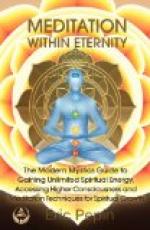All commentators upon modern instances of Illumination unite in regarding Walt Whitman as one of the most, if not the most, perfect example of whom we have any record of cosmic consciousness and its sublime effects upon the character and personality of the illumined one.
Whitman is a sublime type for reasons which are of first importance in their relation to character as viewed from the ideals of the cosmic conscious race-to-be.
Moralists have criticized Whitman as immoral; religionists have deplored his lack of a religious creed; literary critics have denied his claim to high rank in the world of literature; but Walt Whitman is unquestionably without a peer in the roundness of his genius; in the simplicity of his soul; in the catholicity of his sympathy; in the perfect poise and self-control and imperturbability of his kindness. His biographers agree as to his never-failing good nature. He was without any of those fits of unrest and temperamental eccentricities which are supposed to be the “sign manual” of the child of the poetic muse.
In Whitman it would seem that all those petty prejudices against any nationality or class of men, were entirely absent. He exalted the common-place, not as a pose, nor because he had given himself to that task, but because to him there was no common-place. In the cosmic perception of the universe, everything is exalted to the plane of fitness. As to the pure all things are pure, so to the one who is steeped in the sublimity of Divine Illumination, there is no high or low, no good or bad, no white or black, or rich or poor; all—all is a part of the plan, and, in its place in cosmic evolution, it fits.
Whitman cries:
“All! all! Let others ignore what they may, I make the poem of evil also, I commemorate that part also; I am myself just as much evil as good, and my nation is, and I say there, is in fact no evil.”
Compared to the religious aspect of cosmic consciousness in which, previous to the time of Illumination, the devotee had striven to rise to spiritual heights through disdaining the flesh, this note of Whitman’s is a new note—the nothingness of evil as such; the righteousness of the flesh and the holiness of earthly, or human, love, bespeaks the prophet of the New Dispensation; the time hinted of by Jesus, the Master, when he said, “when the twain shall be one and the outside as the inside,” as a sign and symbol of the blessed time to come when the kingdom he spoke of (not his personal kingdom, but the kingdom which he represented, the kingdom of Love), should come upon earth.
Whitman’s illumination is essentially poetic; not that it is not also intellectual and moral; but after his experience—at least an experience more notable than any hitherto recorded by him, in or about his thirty-fifth year—we find his conversation invariably reflecting the beauty and poetical imagery of his mind. He may be said to have lived and moved and had his being in a state of blissful unconsciousness of anything unclean or impure, or unnatural.




